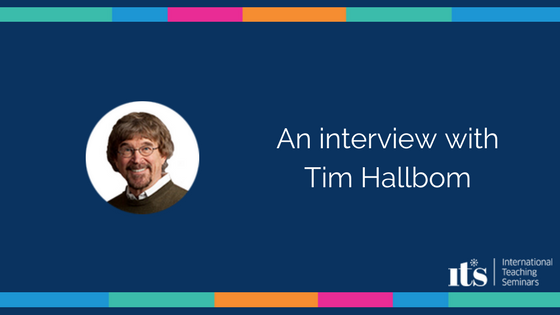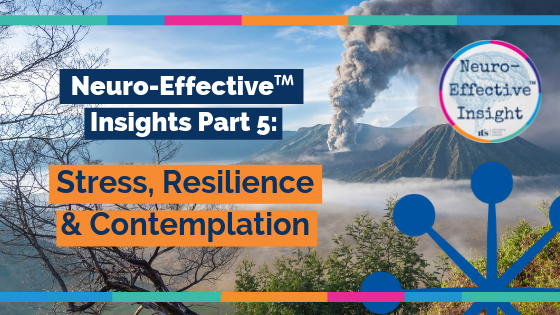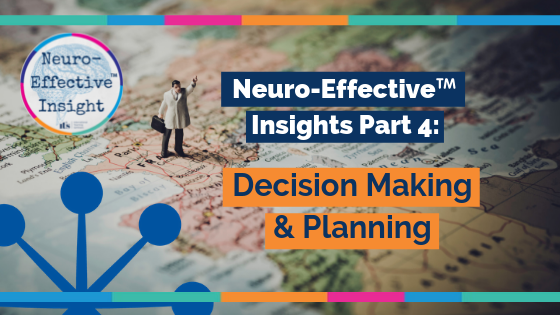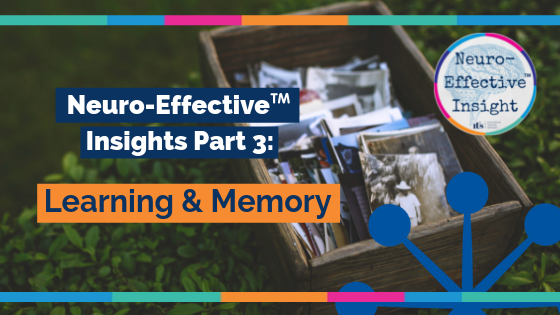With Tim Hallbom’s only 2016 UK training dates fast approaching, when he’ll be delivering his three day workshop ‘Hypnosis: Effective Communication for Positive Change’, we thought it would be good for you to hear from the man himself about hypnosis, how easy it can be to learn, what it can do for you and why kissing a rock might be the best option to change your life experience.
Below is a transcript of a recently recorded interview in which Tim shared some of his wonderful insights into hypnosis, the power of language and the practical benefits of learning how to use both.”
Robert: Hello everyone. This is Robert Harrison at the Bay Area Hypnosis Centre in San Francisco, California. Today we are here with Tim Hallbom, Training Director for the NLP Institute of California. Tim is an international trainer, and we’re going to ask him some questions today about what is hypnosis and how is it used. So thanks for being here Tim. I appreciate your time.
Tim: Thank you so much Robert.
Robert: So Tim, tell us. There’s lots of definitions out there. In your opinion, what is hypnosis?
Tim: Well you’re right. There are lots and lots of definitions of hypnosis. First of all, let me say what I think hypnosis is not. That’s not what you see in the old black and white movies where Dracula lands on the windowsill of somebody’s house and says, “Look into my eyes.” He’s moving his hands back and forth and staring them down. They’re becoming under his control. There’s so much thought of, you know, if I go into hypnosis, somebody is trying to control me or I have to give up my free will, or somebody will get me to do things I don’t want to do.
These are all things we call ‘the myths of hypnosis’. They are things that really aren’t accurate, but they’ve been sensationalised in movies. What hypnosis really is, if you’re working with someone else, it’s a series of agreements between the hypnotist and the person that he or she is working with. The set of agreements are around what’s ecologically important to the client. In other words, what is it that they want and how can we help them get there? So hypnosis is really kind of a special relationship that you might have with somebody else.
Robert: Great. Thank you. So building on that, what would be the advantage of learning how to hypnotise someone and using that in something like a coaching practice, for example?
Tim: That’s a great question. I think it augments any kind of coaching in a very powerful way. Number one: hypnosis basically, or the kind of hypnotic trance you might use in a coach situation, is to help somebody when the ordinary processes of the conscious mind aren’t working to get a solution. Again, like I think I just mentioned, it’s to really drop into your more imaginative self and find your deeper resources.
I tend to think of hypnosis as being kind of a spiritual thing because you’re really trusting the person to come up with and follow their own answers. Interestingly, their answers are all inside of them. It’s a matter of using this kind of process to help them bring it out.
Robert: Tim, is it difficult to lead someone into a trance?
Tim: Actually, if you know how to lead them into a trance, it’s not difficult. Usually, if I do like a weekend seminar or a two or three day programme, I’ll teach three or four ways that you can lead somebody into a very deep trance which would be an open receptive state for learning, for change and for making a difference in your own life or somebody else’s life.
What’s really important is to know what that structure is and then know how to use it once you’re in that open receptive state. So it’s not difficult at all. Anybody can learn it. One of the things I always promise when people come to my trainings is that by the end of the three day programme they’ll have a whole number of different ways they can lead somebody into a trance or even do self-hypnosis, to be able to make some really profound changes.
Robert: Right. So we hear this question all the time. Does hypnosis really work to create change? Can you say a little bit about that for our listeners?
Tim: Yes. This is something that in the last decade or so has really become more and more evident. A few years ago, I set my Google to give me an alert whenever hypnosis and research came up. Over the last few years I’ve accumulated a ton of very positive research, especially in the field of health. People are using hypnosis to be more successful in an operation. For example, the doctor might suggest the person not bleed as much, and people often are able to not do that. Sometimes you can use hypnosis to actually help reduce stress, to eliminate different kinds of symptoms. As I said, there’s lots of research now that shows that. So it can definitely do that.
Robert: Wonderful. Now, another question that comes up a lot is, can I hypnotise myself? What is self-hypnosis? Can I hypnotise myself? Can I use this with myself without going to see a hypnotist to make a change?
Tim: Absolutely. It’s a lot easier than a lot of people think. One of the ways that I teach it is I teach people how to hypnotise somebody else, and then use the same kinds of methods that they use with others with themselves. In doing that, you can do all kinds of wonderful things. I’ll give you some examples. One of the things I have to do in my work is fly internationally, which is you’re flying across a lot of time zones and a lot of people have jetlag. What I can often do is put myself in a trance before I land after flying across the ocean and give myself suggestions that I’ve just had a nice refreshing eight hours of sleep. You wouldn’t believe how much better I feel after that.
You can also use it for setting goals. There’s a kind of self-hypnosis we call ‘success visualisation’. That helps you really create a goal that you want to have that’s compelling, that leads you towards it. You can create any kind of compelling future that way. You can also work with habit patterns that you’re not happy with, with yourself. Again, it goes back to that original notion of when you have a habit pattern way of trying to solve your problems, which all of us do, and it’s no longer working, that’s when we might want to drop down into the deeper structure of our unconscious mind and use our imaginative powers to really make things happen.
Robert: Yes. So let me ask you this. Can you say a little bit about what hypnotherapy is and how that’s maybe different from traditional therapy?
Tim: Yes. Hypnotherapy is where you’re actively using a specific kind of trance state where you have the person come into a relaxed, receptive state of mind. You get their habit patterning out of the way and really help them draw on their inner resources, either past resources they’ve used before or their imagination and creating something brand new, or even modelling another person.
So in a hypnotherapeutic state, what you’re doing is slowing everything down and amplifying it. So usually the images in the mind get more vivid, internal sounds get more vivid, internal experience gets more vivid. You’re able to access parts of yourself that you don’t normally access consciously. So if you have a clear goal in mind and you’ve got a really clear idea of what it is you want, where you are now and the gap that is separating those two things, you can really use hypnosis to be creative in approaching and changing your way of thinking and being to really get what you want.
Hypnotherapy is a really powerful way to work with different kinds of issues. So often I think we try to use our cognitive minds, our thinking, to problem solve things, what’s the strategy in your..? We think with a lot of energy and a lot of work and sometimes come up with a solution and sometimes don’t. But creativity is what we do best as human beings I think. The great gift that we’ve got as humans is that we have an imagination. Our imaginations are what help us make our best choices and create the best responses to the challenges that life give us.
I remember Einstein once said, “Imagination is more important than knowledge.” Every one of us human beings has a super-power of imagination. I think hypnosis, hypnotherapy allows that to be drawn on to create new solutions for life’s challenges.
Robert: Wonderful. Thank you for that explanation. Tim, everyone that knows you knows that you are one of the top NLP trainers in the world. I know that the connection between NLP and hypnosis is very strong because of Milton Erickson. A really big, integral part of learning Neuro-linguistic programming is the Milton Model and the language patterns of influence. I was wondering if you could talk a little bit about how that and hypnosis fits together and how it’s useful?
Tim: The Milton Model was of course named after Milton Erickson who is widely considered to be the greatest psychotherapist of the last century who really legitimised hypnosis in the medical and psychiatric field. Bandler and Grinder, the originators of NLP modelled him as part of the early development of NLP and discovered that he used language in an artfully vague way. What that means is if you use your language in a particular kind of way, you can help a person really draw on their own imagination and their own deeper resources to solve a problem that they might have. So learning the Milton Model would be to be able to state things in such a way that anybody can pull experience from themselves and have it make sense.
Let me give you an experience about that briefly. If I say, take a minute Robert and think about some really important learning you’ve had in the last year.
Robert: Okay.
Tim: As you think back to that classroom and you look at the teacher that’s in front of the room and she’s looking at you and asking you really pointed questions, notice what happens if you that. It kind of pulls you out of the experience, right, because it’s more specific?
Robert: The more detail you give, the more it doesn’t match with my experience and it definitely pulls me out for sure.
Tim: But if I say something like, so Robert think of a moment in the last year or two when you’ve had a great learning. You just allow yourself to find that kind of moment and maybe even bring it up from your unconscious mind. There’s a point at which you will recognise that. You might take a moment and review that experience that you had, that was uniquely yours that helped you to gain some new understanding of what happened. Those are really tiny, brief examples. But the second, virtually anybody can find that. The first one, it doesn’t make sense because it’s very specific.
Robert: Yes, that was really interesting because the first one, as soon as you talked about, when you talked about learning, of course I remembered a training that we did together where you were at the front of the room. As soon as you said, “She,” that pulled me out of the experience. The second time, I actually went to a time when I was playing guitar with a group of friends and something I had learned about timing and music. It was completely different. But I had this feeling that my mind could have gone anywhere. I really like that. It felt really comfortable. There was zero friction with the second one.
Tim: So in a hypnotic process, you can use that to help people drop down into their own resourcefulness. It’s also the language that you hear politicians using. I remember listening to Ronald Reagan, who in America was considered the ‘Teflon Communicator’ because whatever he said was accepted, and if you said anything wrong it kind of dripped away from him. He used to say something like, “National security is important to all of us. Is it not?” And of course everybody would say yes. They had no idea of what he meant specifically. If he had said, we have to spend x amount of money to have this many airplanes and soldiers and that sort of thing, he might have gotten a lot of disagreement on that. But by saying it in a more open way, he allowed people to agree with him. It set the stage then for him to be able to be more successful in getting people to go along with what it was he wanted.
It’s not limited to him. Bill Clinton was just as good. There are many other people from all areas of politics that are exceptionally good at that. It’s not just a language of hypnosis, but it’s also the language of politics. It’s the language of sales. It’s the language of getting people connected and using their own imagination to create what they want.
Robert: Tim, I really appreciate your time. I’m curious, as a take away from this conversation, if there’s one thing that you would really suggest that people could take and really use right now to make their life better, what would it be?
Tim: Well, a simple thing that you could get just from this phone call would be to really pay more attention to the words that you’re using. Your word choice creates your inner experience. For example, I had a woman come to me to work with a relationship issue as a coach a few weeks ago. She said, “You know, my partner and I really need to do some hard work on our relationship.” I heard the words, “Hard work,” and so I asked her about that, “Is that really what you wanted to do?” And she simply said, “No. I just want to relate better.” She began to realise that what she was doing with her partner was making a big barrier in the relationship, because she’d come home from work and he would and she’d say, “You know, we’ve got a problem. We really need to work on this.” That kind of language is creating a barrier in and of itself.
Just when somebody says, “I have a problem,” that kind of language creates more of a barrier to solving than if you think, you know, I’ve got a challenge I want to overcome, or there’s an issue I want to work through. So just languaging these things can make a huge difference. My favourite story about this is a good friend of colleague of mine who is an NLP trainer is Suzy Smith. A few years ago, she was riding her mountain bike down a steep hill in the wilds of Idaho in the United States. Her bike ran into a boulder. The bike stopped and she went over the handlebars into another big rock. She got to the doctor, blood everywhere. He looked at her and he said, “Oh you’ve smashed your face into a rock.” So try that, if you’re listening. Just try it. Say, “I smashed my face into a rock.” And notice what happens to your whole body and how your body responds. And then she said, “No, I kissed a rock.” Now try saying that to yourself and just notice the difference.
So those things like paying attention to your actual word choices can make a difference in your life experience. Most of us speak unconsciously all the time and don’t really notice how the words that we’re choosing actually create the inner experience that we don’t really want. So one thing people could take away just from this call would be how to start listening for word choices, because they can make a gigantic difference in your on-going daily experience. There is lots more of that to learn.
Robert: Wow. That’s great. Thank you for pointing that out, the word choice, especially that internal dialogue and how we talk to ourselves. It really does create our reality. So Tim, I want to thank you for your time today. I know you’re a busy guy. I really appreciate it. I know I personally learned a lot and took a lot from that. So thank you very much.
Tim: Well thank you very much. I appreciate your time and interview as well. It’s been a great 20 minutes, so thanks so much.





Leave A Comment